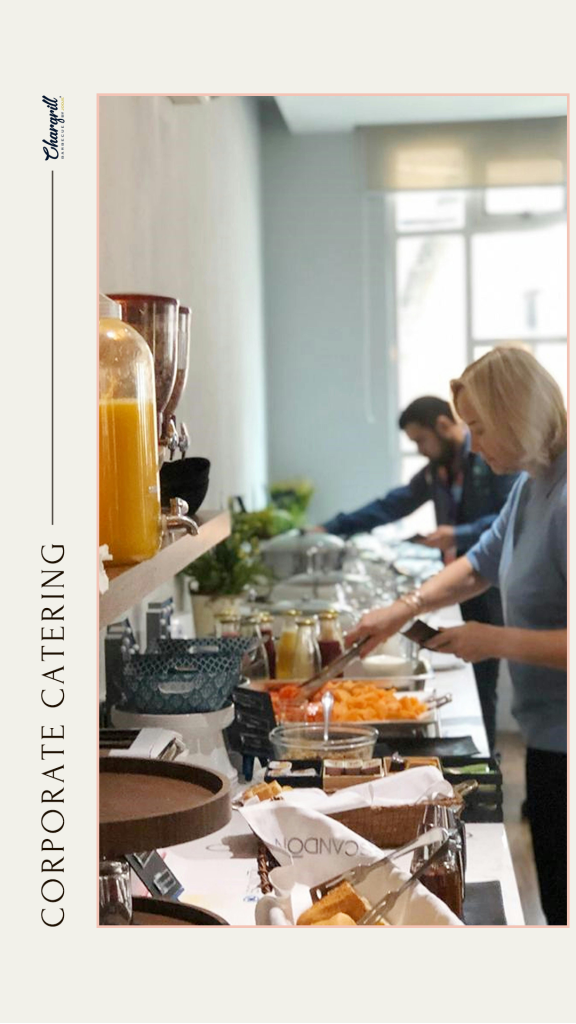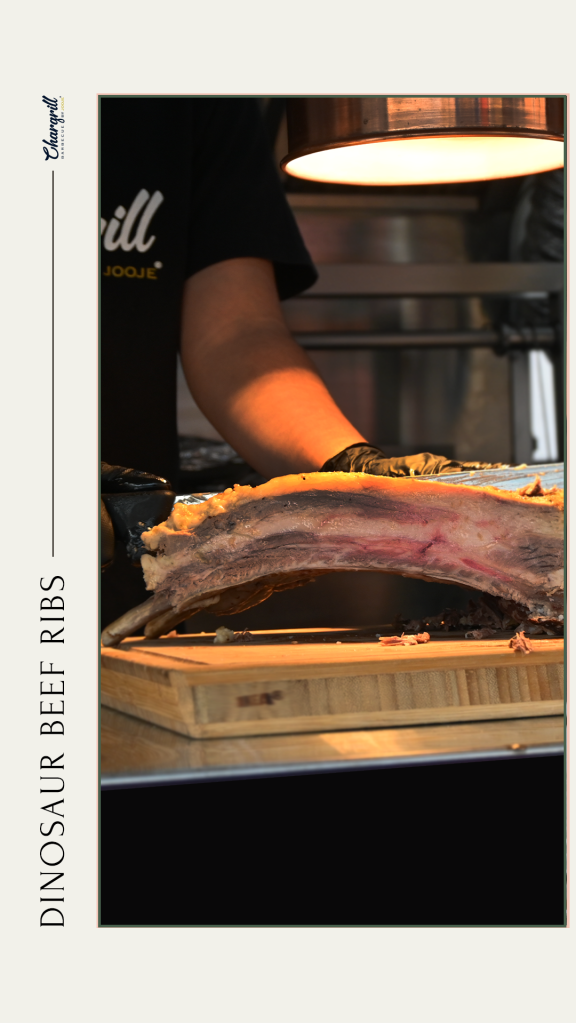Choosing sustainable catering practices significantly reduces the environmental footprint of events. As a professional BBQ Caterer on the gold coast, By prioritizing eco-friendly options, we minimize waste, reduce carbon emissions, and support biodiversity. Sustainable catering often involves sourcing ingredients locally, which cuts down on transportation emissions and supports local agriculture.
Is Sustainable Catering a Trend?
Sustainable catering is more than just a fleeting trend; it’s becoming a significant shift in the industry driven by growing environmental awareness and consumer demand for eco-friendly practices.
Consumer Demand
Recent studies show that consumers are increasingly prioritizing sustainability in their purchasing decisions. According to a report by Nielsen, 66% of global consumers are willing to pay more for sustainable brands. This consumer shift is reflected in the catering industry, where there is a rising demand for eco-friendly and locally sourced food options.
Industry Practices
Many catering companies are adopting sustainable practices not only to meet consumer demand but also to reduce their environmental impact and improve efficiency. Practices such as reducing food waste, using biodegradable or vacuum sealed packaged food, and sourcing local, organic ingredients are becoming standard (Make Venues) (PAT Testing). These changes are often highlighted in marketing materials to attract environmentally conscious clients.
Long-Term Impact
Sustainability in catering is expected to have a lasting impact. The benefits of sustainable practices, including cost savings from waste reduction and energy efficiency, make them appealing from a business perspective. Moreover, as regulations around environmental impact tighten, sustainable practices will become a necessity rather than an option .
Examples from the Industry
Several top-ranking catering companies have successfully integrated sustainable practices into their operations. For instance, Mai Oui Catering emphasizes working with local, ethical vendors and reducing waste through innovative solutions. Similarly, Pearl Lemon Catering focuses on eco-friendly options and has made a strong commitment to sustainability in their services.

Health Benefits of sustainable catering
Sustainable catering typically emphasizes organic, plant-based, and seasonal foods, which are often healthier. Organic foods are grown without synthetic pesticides or fertilizers, reducing the risk of harmful chemicals in your meals. Plant-based diets have been shown to lower the risk of chronic diseases, while seasonal foods are fresher and more nutrient-dense.
Economic Advantages
While some may think sustainable catering is more expensive, it can actually be cost-effective. Local sourcing can reduce costs associated with transportation and long-term supply chain issues. Additionally, reducing waste through efficient planning and composting saves money. Supporting local businesses also strengthens the local economy, creating a more resilient community.
| Benefit | Details |
|---|---|
| Environmental Impact | Reduces waste, carbon emissions, and supports biodiversity |
| Health Benefits | Emphasizes organic, plant-based, and seasonal foods; reduces chronic disease risk |
| Economic Advantages | Cost-effective through local sourcing and waste reduction; supports local economy |
Local and Seasonal Sourcing: Benefits of Using Local Produce
Using local produce ensures fresher ingredients, which enhances the quality and flavor of dishes. It also reduces the carbon footprint associated with transporting food over long distances. Supporting local farmers and producers keeps money within the community, fostering economic growth and stability.
Creating Seasonal Menus
Designing menus around seasonal produce not only offers the freshest ingredients but also introduces variety throughout the year. Seasonal menus encourage creativity and can feature unique, region-specific dishes that delight guests.
Comparison: Local vs. Imported Produce
| Aspect | Local Produce | Imported Produce |
|---|---|---|
| Freshness | Often harvested at peak ripeness | May be picked early to survive transportation |
| Environmental Impact | Lower carbon footprint due to reduced transportation | Higher carbon footprint from long-distance travel |
| Support to Local Economy | Keeps money within the community, supports local farmers | Benefits foreign economies, may harm local farmers |
Recommended Sustainable Catering Menus for Weddings and Parties
These menus not only emphasize the use of sustainable and local ingredients but also cater to different types of events and preferences, ensuring that every guest has a delightful and eco-friendly dining experience.
Rustic Outdoor Wedding
A rustic outdoor wedding embraces the natural environment, making it perfect for a sustainable menu that features local, organic ingredients.
Appetizers
- Heirloom Tomato Bruschetta: Fresh heirloom tomatoes, basil, and locally sourced olive oil on crusty bread.
- Mini Vegetable Tartlets: Assorted seasonal vegetables in a flaky, homemade crust.
Main Course
- Grilled Vegetable Platter: A selection of seasonal vegetables grilled to perfection, served with a side of quinoa salad.
- Free-Range Chicken with Herbs: Locally sourced, free-range chicken marinated with fresh herbs and roasted.
Dessert
- Berry Compote with Fresh Cream: Seasonal berries lightly sweetened and served with organic whipped cream.

Elegant Indoor Wedding
For an elegant indoor wedding, the menu can be refined and sophisticated while still focusing on sustainability.
Appetizers
- Organic Mushroom Canapés: Sautéed organic mushrooms on whole grain crostini with a hint of truffle oil.
- Chilled Cucumber Soup Shooters: Refreshing cucumber soup made with local ingredients, served in shot glasses.
Main Course
- Pan-Seared Wild Salmon: Sustainably sourced wild salmon with a lemon-dill sauce, served with a side of roasted root vegetables.
- Vegan Risotto: Creamy risotto made with organic Arborio rice, seasonal vegetables, and vegetable broth.
Dessert
- Lavender Honey Panna Cotta: A delicate panna cotta flavored with local lavender and honey, served with a berry garnish.
Casual Backyard Party
A casual backyard party can feature a relaxed, fun menu that highlights sustainable ingredients.
Appetizers
- Local Cheese and Charcuterie Board: A selection of local cheeses and cured meats, served with fresh bread and seasonal fruit.
- Stuffed Mini Peppers: Mini bell peppers stuffed with a mixture of quinoa, black beans, and fresh herbs.
Main Course
- Grass-Fed Beef Burgers: Grass-fed beef patties served with a variety of toppings, including local lettuce, tomatoes, and pickles.
- Grilled Portobello Mushrooms: Marinated and grilled portobello mushrooms served as a vegetarian burger option.
Dessert
- Fruit Skewers with Yogurt Dip: Skewers of seasonal fruits served with a honey-sweetened yogurt dip.

Formal Corporate Event with Sustainability theme
A formal corporate event calls for a professional yet sustainable menu that impresses guests.
Appetizers
- Smoked Salmon Blinis: Blinis topped with sustainably sourced smoked salmon, crème fraîche, and dill.
- Vegan Stuffed Mushrooms: Button mushrooms stuffed with a mixture of nuts, herbs, and breadcrumbs.
Main Course
- Herb-Crusted Lamb: Free-range lamb crusted with fresh herbs and served with a side of roasted garlic potatoes.
- Stuffed Bell Peppers: Bell peppers filled with a mixture of lentils, rice, and spices, topped with a tomato sauce.
Dessert
- Dark Chocolate Tart: A rich tart made with fair-trade dark chocolate, served with a raspberry coulis.
Sustainable Children’s Birthday Party
For a children’s birthday party, the focus can be on fun, healthy, and sustainable options that kids will love.
Appetizers
- Vegetable Sticks with Hummus: Colorful sticks of carrots, cucumbers, and bell peppers served with homemade hummus.
- Mini Fruit Pizzas: Whole grain mini pizza bases topped with yogurt and an assortment of fresh fruits.
Main Course
- Organic Chicken Tenders: Baked organic chicken tenders served with a side of sweet potato fries.
- Vegetarian Mini Pizzas: Personal-sized pizzas with whole grain crusts, tomato sauce, and various vegetable toppings.
Dessert
- Fruit Popsicles: Homemade popsicles made with blended seasonal fruits and a touch of honey.

Plant-Based and Organic Options
Plant-based diets have a lower environmental impact, requiring less land, water, and energy compared to meat-based diets. They also tend to be healthier, offering a diet rich in vitamins, minerals, and antioxidants while reducing risks of chronic diseases.
Importance of Organic Ingredients
Organic farming practices avoid synthetic pesticides and fertilizers, promoting healthier soils and ecosystems. Organic foods are often more nutrient-dense and free from GMOs and artificial additives.
Pros and Cons: Plant-Based vs. Traditional Diets
| Aspect | Plant-Based Diet | Traditional Diet |
|---|---|---|
| Environmental Impact | Lower, due to reduced resource use | Higher, due to intensive resource use for meat |
| Health Benefits | Reduces risks of chronic diseases, rich in nutrients | Can be high in saturated fats, less fiber |
| Cost | Can be cost-effective, especially with local sourcing | Often more expensive, especially for organic meat |
Example Plant-Based Menu
- Appetizer: Mixed greens salad with seasonal vegetables and vinaigrette
- Main Course: Quinoa and black bean stuffed peppers
- Dessert: Vegan chocolate mousse with coconut cream
Waste Reduction Strategies
Minimizing Food Waste
Effective waste reduction strategies include accurate portion control, menu planning based on the number of attendees, and using all parts of ingredients. Composting and recycling food scraps further minimize waste.
Composting and Recycling Practices
Implementing a composting system transforms food waste into valuable compost for gardens. Recycling helps reduce the amount of waste sent to landfills, conserving resources and energy.
Comparison: Waste Management Techniques
| Technique | Benefits | Challenges |
|---|---|---|
| Composting | Reduces landfill waste, produces useful compost | Requires space and management |
| Recycling | Conserves resources, reduces landfill burden | Requires proper sorting and contamination control |
| Portion Control | Minimizes food waste, cost-effective | Requires accurate estimation of guest numbers |
Eco-Friendly Materials and Packaging
Alternatives to Single-Use Plastics
Using biodegradable or reusable materials significantly reduces waste. Options include compostable plates and utensils, reusable glassware, and eco-friendly packaging.
Benefits of Biodegradable and Reusable Materials
Biodegradable materials break down naturally, reducing pollution and landfill burden. Reusable items reduce the need for single-use products, saving resources and reducing waste.
Pros and Cons: Biodegradable vs. Reusable
| Aspect | Biodegradable | Reusable |
|---|---|---|
| Environmental Impact | Breaks down naturally, reducing waste | Reduces need for single-use products |
| Cost | Often more affordable for single events | Initial investment higher, but cost-effective long-term |
| Convenience | Easy to dispose of, no need for washing | Requires washing and storage |
Energy Efficiency in Catering
Using Energy-Efficient Appliances
Modern appliances consume less energy, reducing operational costs and environmental impact. Energy-efficient ovens, refrigerators, and dishwashers are essential for sustainable catering.
Reducing Energy Consumption
Simple practices such as turning off equipment when not in use, using energy-efficient lighting, and optimizing kitchen layout can significantly reduce energy consumption.
Comparison: Energy-Efficient vs. Traditional Appliances
| Aspect | Energy-Efficient Appliances | Traditional Appliances |
|---|---|---|
| Energy Consumption | Lower, reduces operational costs | Higher, increases energy bills |
| Environmental Impact | Reduced carbon footprint | Higher carbon footprint |
| Cost | May have higher upfront cost, but savings over time | Lower initial cost, higher operational costs |
Engaging with Local Communities
Supporting Local Farmers and Vendors
Partnering with local farmers and vendors ensures fresh, high-quality ingredients while supporting the local economy. This creates a network of reliable suppliers and fosters community resilience.
Partnering with Community Organizations
Collaborating with community organizations for food donations and surplus management can reduce waste and support those in need, enhancing the social impact of your catering business.
Example Partnerships
- Local farmers’ markets for fresh produce
- Community gardens for herbs and vegetables
- Food banks for surplus food donations
Case Studies and Success Stories
Example: Zero-Waste Event
A recent corporate event successfully implemented zero-waste strategies, including:
- Menu Planning: Using locally sourced, seasonal ingredients
- Waste Management: Composting food scraps and recycling
- Eco-Friendly Materials: Biodegradable plates and utensils
The event not only reduced waste but also received positive feedback for its commitment to sustainability. Clients have praised sustainable catering for its quality, taste, and environmental benefits. Many have noted the positive impact on guest satisfaction and company image.
Embracing sustainable catering practices is not only beneficial for the environment but also enhances the quality of food, supports local economies, and meets growing consumer demand for eco-friendly options. By incorporating these practices into your catering business, you can create memorable, impactful events that align with modern values and sustainability goals.
What are the main benefits of sustainable catering?
Sustainable catering offers numerous benefits, including reducing environmental impact, promoting healthier eating, supporting local economies, and potentially lowering costs through waste reduction and efficient resource management.
How can I ensure my catering event is eco-friendly?
To ensure an eco-friendly catering event, focus on using local and seasonal ingredients, incorporating plant-based and organic options, reducing waste through composting and recycling, and using biodegradable or reusable serving materials.
Are eco-friendly catering options more expensive?
Eco-friendly catering options can sometimes be more expensive due to the cost of organic and locally sourced ingredients. However, these costs can be offset by savings from waste reduction, efficient energy use, and supporting local economies.
What types of menus work best for sustainable catering?
Menus that work best for sustainable catering include those that use seasonal, locally sourced ingredients, plant-based options, and incorporate waste reduction strategies. Examples include seasonal vegetable platters, plant-based mains, and desserts made with local fruits.
How do I find local and sustainable vendors for my event?
To find local and sustainable vendors, research farmers’ markets, community-supported agriculture programs, and local organic farms. Partner with vendors who prioritize sustainable practices, such as minimal packaging, ethical sourcing, and waste reduction initiatives.



